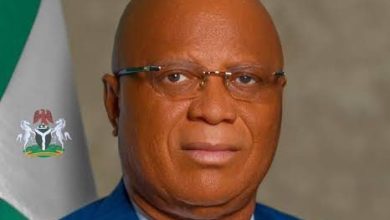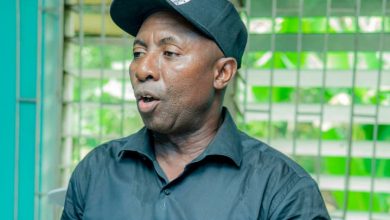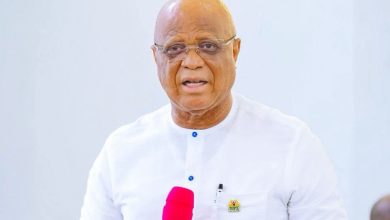How Absence Of Education Sector Plan Contributes To Insufficient Special Educators In Akwa Ibom
Mercy Obot, Uyo
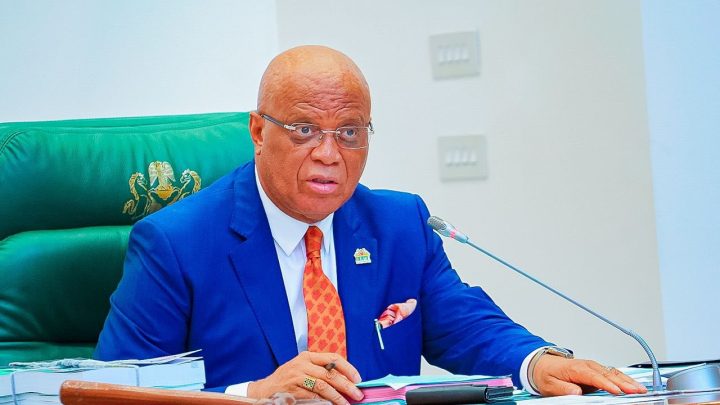
Naomi Umoh was seen signing for students with hearing impairments for three hours. She appeared a bit unwell, and her eyes reflected the strain of standing for such an extended period. Her body seemed to have undergone significant and traumatic stress.
However, the work was not over for the woman who is in her thirties. With her fragile voice, Naomi narrated how she had to sign for another three hours because there was no other sign language interpreter available for the second class.
Like a living sacrifice, this reporter observed that Naomi signed again for the next three hours, despite her body being worn out and etched with weakness.
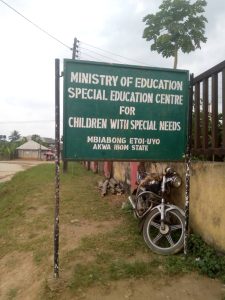
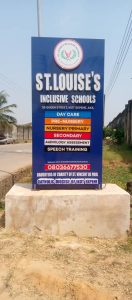
This exhausting routine is not unique to Naomi. In a heart-wrenching conversation, the special education teacher compared her daily teaching job to a toxic relationship and an emotional rollercoaster, attributable to the unforgiving conditions surrounding it.
She explained how she is often burdened with the responsibility of signing for hundreds of students with hearing impairments each day, due to a severe shortage of special educators at the only government-owned inclusive Special Education School in Mbiaobong Etoi, Uyo, Akwa Ibom State.
“My colleagues have left due to unfavourable conditions; sometimes, they go unpaid for six months. I do not know what happens to the money allocated to the school, but I am aware that the funds released are insufficient to pay the ad-hoc staff who assist with the over 300 hearing-impaired students in the institution.
“Now, only a few of us remain to impart knowledge to these children. I’m afraid that if nothing is done to address this dire situation, the school will likely fall apart due to neglect by the state government,” she lamented.
Echoing his sentiments, Brown Ekong, a special education graduate who teaches at the Catholic church-owned Saint Louise’s Inclusive School in Ikot Ekpene Local Government Area shared his insights with Crystal Express.
Related: Struck By Fate: Inside Special School Where Disability Students Learn In Termite-Infested Classrooms
According to him, “Tutoring these kids can lead to emotional burnout, resulting from the high demands of the work, limited support, and intangible rewards from either the children’s parents or the government.”
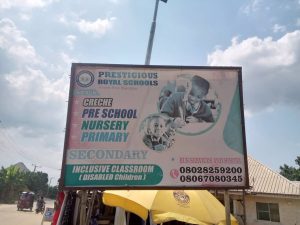
With his wealth of experience, Ekong believes that teaching children with disabilities is not just a job, but a calling that must be pursued out of love.
He adds that many of his colleagues who studied special education with him have left the profession due to “limited advancement opportunities and professional development.” Even when these opportunities are available, the compensation is inadequate.
The experiences of Naomi and Brown highlight a broader issue. Their words vividly illustrate the desperation and frustration that accompany being a special educator in a severely under-resourced system.
Again, their opinions reflected the struggles of hundreds of special education teachers facing similar challenges in Akwa Ibom State.
Due to these difficult conditions, some have left the profession, resulting in an insufficient number of special education teachers in inclusive and special education centres.
Ultimately, the lack of support for special educators has serious consequences. This critical situation can be attributed to the absence of a comprehensive Education Sector Plan (ESP) in Akwa Ibom State.
Special Education Teacher Shortage in Akwa Ibom State
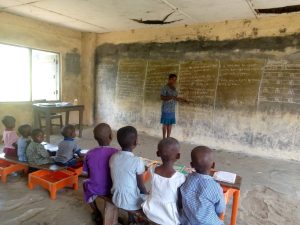
In addition to lacking an educational plan, Akwa Ibom State has not yet adopted the national disability law or implemented the National Policy on Education.
These policies are designed to ensure that all children, including those with disabilities, have the right to access effective and quality basic education.
However, it has been observed that poor implementation and inadequate legal frameworks have left children with special needs in rural areas at a disadvantage.
Notably, the state has only one government-owned inclusive education centre, which is located in the state capital, despite having 31 local government areas.
According to the Joint National Association of Persons with Disabilities (JONAPWDS), there are seven special schools and learning centres; however, six of them are private and often expensive. Teachers in these schools feel underpaid, which prompts many to seek alternative professions.
The challenges faced by these teachers reflect a broader nationwide issue. A shortage of teachers heightens the problem, as the 2022-2023 Universal Basic Education Commission (UBEC) National Personnel Audit report revealed a deficit of 194,876 teachers in public primary schools.
Meanwhile, the Akwa Ibom State’s recruitment challenges aggravate the problem. Despite hiring 3,500 teachers in 2018 and 1,000 in 2022, no special educators were recruited in 2022.
This situation has visibly created a significant gap in the education system. The consequences of this gap are severe, as highlighted by reports from the United Nations Children’s Fund (UNICEF) and the United Nations Educational, Scientific and Cultural Organization (UNESCO).
Insufficiently trained teachers, ineffective recruitment, and poor-quality teaching contribute to the dropout rate of children with disabilities.
UNESCO reports that over 10.5 million children in Nigeria are out of school. In Akwa Ibom State, data from the National Bureau of Statistics (2020) reveals that nearly 582,000 children, including almost 298,000 girls, are not receiving education.
Significant Challenges Faced by Special Education Teachers in Inclusive and Specialized Centers
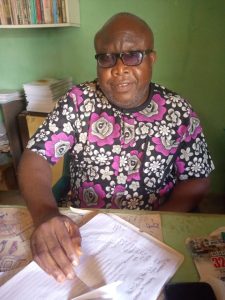
Elder Imo Essien, a special education teacher and director at the Prestigious Royal School in Ibesikpo Asutan Local Government Area, expressed his concerns to Crystal Express Newspaper regarding the difficulties that special education teachers encounter.
Essien cited high levels of stigmatization against children with special needs, which, according to him, leads to parental rejection and further stigma against special education teachers with disabilities.
“Societal rejection remains our major challenge, as the community often views us as inferior because we teach children with disabilities, particularly some teachers who are hearing or visually impaired. This perception devalues our profession.
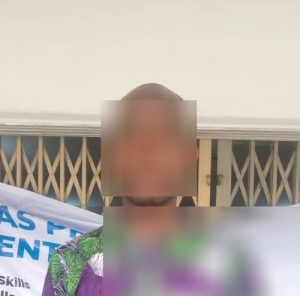
“We do not receive the same recognition as other teachers because some believe we are insignificant for identifying with the marginalized. Society views special education as unimportant because it involves teaching children who may not become successful individuals in the future,” Essen lamented.
The director expressed concern about the challenges of teaching children with disabilities without access to technology.
“In Akwa Ibom State, teaching children with disabilities is challenging because most special centres are not technology-based.
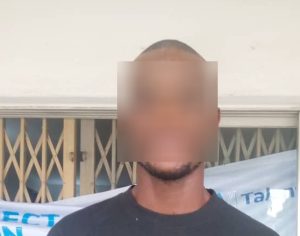
“Unlike in developed countries, some children here do not even have a pen, book, or pencil, let alone technological aids to write down their class lessons. Unfortunately, teachers face significant difficulties and hardships in educating these children,” he said.
Furthermore, Essien expressed displeasure over the inadequate capacity building and low salary scales for special educators, citing these as key challenges affecting the academic performance of students with disabilities.
He noted that the National Education Policy recommends a 30% increase in the basic salaries of special educators, emphasizing the need for regular training and higher salaries.
“The Akwa Ibom government had approved a 15% incentive, which was later increased to 30%. However, when the immediate past government took office, they completely removed it.
“These incentives were meant to serve as motivation, but since they are no longer available, there is a lack of motivation for special teachers to work effectively.”
Expressing similar frustration, Mr. Okon Okon, a special education teacher at Saint Louise’s Inclusive School, criticized the underpayment of professionals in private schools despite high enrollment fees.
Okon told this reporter that the school’s budget, which relies on student fees, often leads to the underpayment of teachers.
One of the staff, who requested to remain anonymous, stated that the school faces difficulties in compensating teachers due to financial pressures from families of special needs students.
“Of the 250 students, only 120 can pay fees, while 80 are sponsored by the school, which affects staff salaries”.
At the same time, the ongoing challenges and lack of growth opportunities are driving special educators to leave the profession.
This trend has resulted in a significant shortage of special education teachers in the state.
Negative Effects of Shortage of Special Teachers on Children With Special Needs
The shortage of special education teachers negatively affects the academic performance of students with special needs. Additionally, when untrained regular teachers are assigned to teach these students, it can result in stigmatization and neglect.
A special education teacher who wished to remain anonymous emphasized the detrimental effects of insufficient training on students’ performance.
“Special education requires a professional’s love, care, and specialized training,” he said. “Without this, regular teachers can struggle to support students with special needs.”
“Institutions are seeking more special education teachers because regular teachers are already overwhelmed. Unfortunately, we often have more regular teachers leading students with special needs, and this is a problem.”
Uboho Ime, a visually impaired student, shared her experiences with Crystal Express, highlighting the challenges she faces in the classroom. She pointed out that some teachers do not fully understand how to support visually impaired students, often expecting them to keep up with their sighted peers.
Ime mentioned her reliance on a recorder for taking notes instead of traditional notebooks, explaining, “Some teachers ask me to submit notes, but I have to clarify that I record them instead.”
Concurring her words, Elder Imo Essien remarked that no regular teacher can effectively educate a visually impaired student, regardless of their efforts, due to the specialized skills required for teaching this group.
Another special education teacher added, “Teaching students with disabilities demands immense patience and a profound understanding of each child’s individual needs and learning styles.”
“Additionally, students with disabilities may feel pressured to pretend they understand a lesson, even when they do not. However, teachers who build strong relationships can receive honest feedback about their teaching methods,” she noted.
A hearing-impaired individual and a sign language interpreter share grievances about discrimination, stating, “Many regular teachers look down on deaf students because they struggle to understand the lessons. This is incredibly discouraging for deaf children and leads to a lack of motivation to learn.”
Government Officials Remain Tight-lipped
Attempts to contact the Commissioner for Education, Mrs. Idongesit Etiebet, and the Chairman of the State Universal Basic Education Board (SUBEB), Rt. Hon. Anietie Etuk, regarding the shortage of special education teachers in the state, were unsuccessful, despite numerous calls and text messages sent to their known mobile line.
Additionally, efforts were made to obtain information from the Chairman of the State Secondary Education Board (SSEB), Ekaette Ebong Okon, but she directed this reporter to the Commissioner for Education, noting that special education teachers are directly handled by the Ministry of Education.
Despite the urgent concerns, the government’s response seemed to have been slow.
ESP and Gender Responsiveness
In Akwa Ibom State, the development of a comprehensive Education Sector Plan (ESP) has become essential for achieving strategic learning outcomes.
This plan, experts believe, would serve as a clear roadmap for tackling key challenges and creating a sustainable education system that positively impacts lifes of all children and teachers, regardless of their location or abilities.
A research report from the Development Research and Projects Centre (DRPC) highlights that State Education Sector Plans (SESPs) are Nigeria’s sole official education policy framework, integrating children’s educational goals throughout the education system.
It is crucial to ensure that the Education Sector Plan is gender-responsive, addressing critical issues such as the needs of children with disabilities and the shortage of teachers in primary and secondary schools within the state.
The ImpactHouse organization emphasizes the importance of a Gender-Responsive Education Sector Plan (GRESP), noting that this approach enhances resource allocation, improves teaching effectiveness, increases incentives, fosters better collaboration among stakeholders, and aligns with both national and international educational goals.
A Call To Action
The stark reality of the significant challenges encountered by special education teachers in inclusive and specialized centers, coupled with the detrimental impact of the shortage of special educators on children with special needs, underscores the urgent need to address this issue. Therefore, it is imperative that students with disabilities are largely left behind.
To address this lapses, collaboration among policymakers, civil society organizations, non-governmental organizations, schools, and traditional institutions has become essential in developing a comprehensive State Education Sector Plan. Special educators say this plan would specifically address the unique challenges faced by all students, including those with disabilities, and the lack of qualified instructors in the state
And by working together, these stakeholders can create a more inclusive and equitable education system in Akwa Ibom State.
-Naomi Umoh, Brown Ekong, and Mr. Okon Okon are not the real names of the sources; they spoke on condition of anonymity.
This report was published with collaborative support from Impact House and System Strategy and Policy Lab (SSPL).

